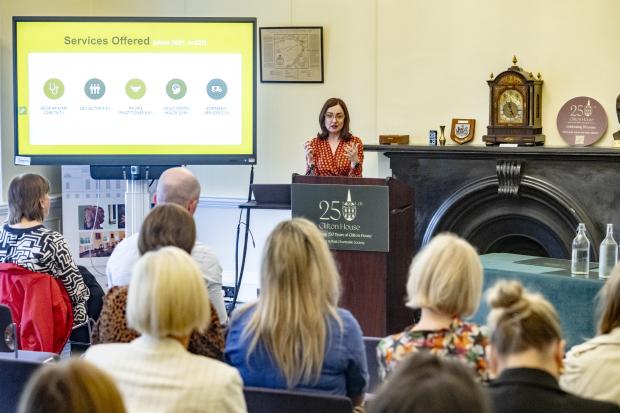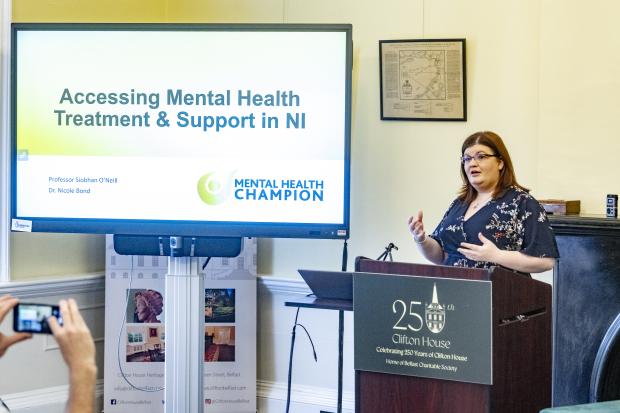
The latest results from the Northern Ireland Life and Times (NILT) survey have found that the majority of respondents (75%) rated their mental health and wellbeing to be good, very good or excellent.
The findings from the 2023 survey on ‘Experiences of Accessing Mental Health Supports in Northern Ireland’, were launched by Professor Siobhan O’Neill and Dr Nicole Bond from the Office of the Mental Health Champion during Mental Health Awareness Week (13 – 19 May 2024).
A third (30%) of NILT respondents reported that their mental health and wellbeing had been impacted by the conflict in Northern Ireland, and this was higher among men (36%) than women (23%).
Just over one in five (23%) respondents had sought support or treatment for their mental health at any time since October 2021, and of those seeking services, 80% were offered services from their GP/Primary Care practice. Around one in 10 of those who sought mental health support or treatment were offered services from the community and & voluntary sector (9%), private practitioner (9%), and adult mental health services (11%).
Over half (55%) received interventions leading to an improvement in their mental health within 9 weeks. Almost 7 in 10 received effective support or treatment within six months (17% waited between 9 weeks and 6 months). However, 12% said that they never received treatment or support that worked.
Medication was offered to 70% of those who presented before October 2021, and 67% of those who sought support or treatment since. Medication was the only support or treatment offered to around a third of respondents in both time periods. Around two thirds were offered a combination of medication and other, non-pharmaceutical interventions.
Reflecting on the findings, Mental Health Champion for Northern Ireland, Professor Siobhan O’Neill said:
“The results confirm that high proportions of the NI population have good wellbeing. However, services for those with poor mental health remain inadequate. A substantial proportion of those who sought mental health support or treatment did not receive an effective intervention within the recommended nine weeks.
“Psychological therapies are recommended as effective treatments; however, the proportions who received non-pharmaceutical interventions remain too low. These data illustrate a clear need to expand the availability of psychological therapies, as identified in the Mental Health Strategy. Primary care remains vital to the delivery of mental health services, and these findings support the expansion of Multidisciplinary Teams in this setting. It is clear that the conflict continues to have an impact on the mental health of the population here, and this again suggests that the mental health needs of the NI population are more complex than in other regions, due to the association with trauma.
“Despite the current pressures, over half of the people who sought support or treatment have received effective services that led to an improvement in their mental health within recommended time periods. It is important to recognise the there are many excellent services available. Overall, the results demonstrate the need for the implementation of the Mental Health Strategy and the reform of services to ensure that all those who require treatment and support get an effective service.”
Dr Paula Devine, Co-Director of ARK from Queen’s University Belfast noted:
“For over 25 years, the Northern Ireland Life and Times has been recording public attitudes to key social issues affecting our lives. The seminar and findings relating to mental health supports are especially timely, given that Mental Health Awareness Week is 13-19 May.”
For the full NILT Survey results, as well as technical notes and questionnaires, please visit the NILT website at www.ark.ac.uk/nilt
You can also read the research update into these results here.
